Recycled-Melt-to-Preform – Circular-economy 30-05-2022 - Arhive
Recycled-Melt-to-Preform – Circular-economy
-Herbold can customize wash plant capabilities to produce food grade recyclates
Drawing from its assortment of plastics recycling equipment, Herbold can custom configure wash plants for polyolefins capable of producing food grade recyclates.
While each wash plant is designed around the user’s specific requirements and facility characteristics, all feature a multi-stage process usually consisting of pre-shredding, pre-washing and initial separation, granulation, high-density separation, and drying.
Pre-shredding is typically done in a single-shaft shredder such as the Herbold 60/120. With a 23.5-inch diameter rotor and 60 individual knives, these machines can accept bales of contaminated waste and process up to 13,000-pounds per hour.
Washing takes place in a VWE-60 pre-washing unit which employs a three-step process of sink and swims to remove heavy materials, intensive spray wash to loosen and remove embedded sediment and an additional sink and swim to further eliminate remaining sediment. Recycled-Melt-to-Preform – Circular-economy
Further size reduction takes place in a wet granulator such as the Herbold 80/120. The wet operation provides additional separation of particles and contaminants from materials.
Additional high-density separation of contaminants and recyclate occurs in a Hydrocyclone. The centrifugal force of the Hydrocylcone provides separation that exceeds conventional methods by a factor of 15, ensuring the level of purity necessary for food grade recyclate.
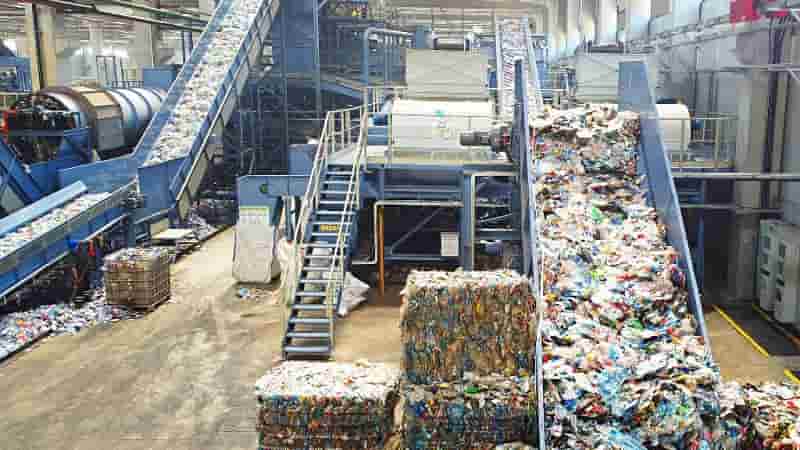
-Husky develops HyPET HPP5e Recycled Melt to Preform (RMTP) system
Husky Technologies, a technology provider enabling the delivery of essential needs to the global community, announced the introduction of its HyPET HPP5e Recycled Melt to Preform (RMTP) system. With one system already running in the field and the second soon to be delivered, this development marks the integration of a preform injection moulding system with melt decontamination unit – enabling the direct conversion of washed flake to preform.
“With today’s circular economy driving new package design and more efficient production, we are dedicated to working closely with our customers to ensure their products meet specific regional requirements, particularly around recycling and enabling recycled content in packaging,” said Robert Domodossola, Husky’s President of Rigid Packaging. Recycled-Melt-to-Preform – Circular-economy
Next step in sustainable, closed-loop packaging
Husky’s RMTP technology is offered as a module of the company’s proven HyPET HPP5e high performance system designed to support the closed-loop conversion of washed flake to preform by accepting food approved grade melt from an upstream provider. By eliminating the drying and melting steps associated with traditional rPET preform manufacturing, this solution facilitates the effective production of packaging made from 100 per cent rPET material, further supporting the circularity of PET.
By streamlining the process to bypass inhouse rPET pellet production and go directly from washed flake to preform, the new system is claimed to enable producers to achieve 30 per cent energy savings, helping to further lower production costs. In addition, the system is equipped with Husky’s Advantage+Elite real-time proactive, predictive, transparent monitoring solution as a standard feature.
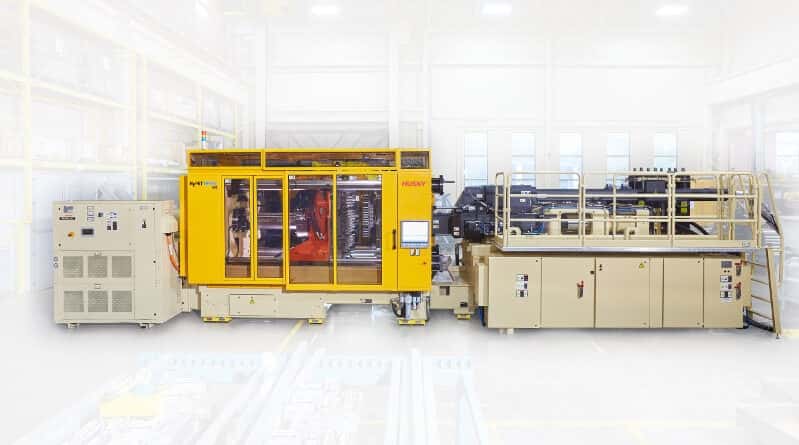
-PPS-Polyamide Tubing Offers High-Temp Option for Cooling Lines
Electric and fuel-cell vehicles may benefit from latest innovation out of Japan.
Japanese firms Polyplastics-Evonik and Toray Industries have jointly developed a three-layer extruded tube in which the outer polyamide 12 (PA 12) layer and inner polyphenylene sulfide resin (PPS) layer are bonded together with a special adhesive. Able to withstand temperatures of 130°C, the tubing also boasts low levels of ion elution into cooling water. Target applications include coolant lines for electric vehicles (EVs) and industrial machinery. Recycled-Melt-to-Preform – Circular-economy
PA 12 often has been used in combination with polypropylene (PP) as the inner layer in lightweight tubing for automotive coolant lines, but continuous usage was restricted, and hydrolysis was also an issue. With its heat and hydrolysis resistance, PPS resin addresses these concerns, but it does not bond directly with long-chain polyamides such as PA 12. Polyplastics-Evonik and Toray solved this challenge with an all-new material that can be co-extruded to bond the two resins.
The elevated heat resistance of the new tubing structure could enable replacement of metal tubing, while corrugated tubing is also an option. Further, the low level of ion elution makes the tubing particularly suitable for EV and fuel-cell vehicle applications.
Toray is the world’s leading supplier of PPS resin, being integrated from monomer through to compounds.
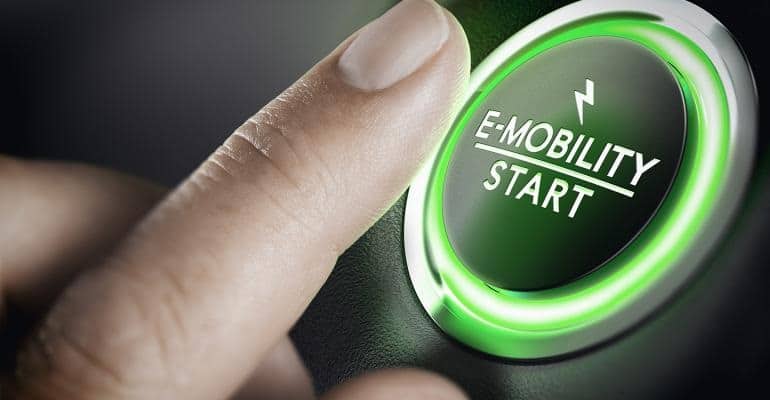
-The Plastic Packaging Tax – a signpost to the circular economy
Chartered Marketer Louise Aplin considers how the recently implemented Plastic Packaging Tax impacts packaging manufacturers and shares the perspectives of two of her industry specialist clients on reformulating packaging to include recycled content.
Back in late 2018, then Chancellor of the Exchequer Philip Hammond announced the introduction of the UK Plastic Packaging Tax (PPT). At that stage 2022 seemed quite a way off. Fast forward three years and despite a global pandemic and subsequent trade and supply chain uncertainties, many packaging manufacturers have adapted their products to incorporate at least 30% recycled content to avoid incurring the tax.
Reformulating packaging products to incorporate recycled content has been a new experience for many and for some it was a steep learning curve. Prior to the PPT, using recycled content was an ambition for many businesses working towards more sustainable manufacturing but this was often considered technically challenging. This challenge has become more difficult to achieve as it has now been clarified by HMRC that companies are not able to include industrial waste. Recently updated HMRC guidance states that pre-consumer plastic ‘does not include scrap or regrind which can be reused in the process from which it was generated after only minimal reprocessing’. The Guidance goes on to say ‘where waste material is recovered and requires reprocessing involving melting and extrusion into pellets at a reprocessing facility before it can be reused, it can be treated by manufacturers as recycled plastic for any process.’ Recycled-Melt-to-Preform – Circular-economy
As of April 2022 however, including 30% recycled content is key to remaining competitive through avoiding the £200 per tonne tax.
Two organisations operating within the sphere of manufacturing sustainable plastic packaging are Chase Plastics and Greenacre Consulting.
“Although initially perceived as just another tax, the PPT has accelerated many companies’ desire to embrace the Circular Economy.” comments David Harris, Chief Executive at Chase Plastics, a UK manufacturer of post use recycled polythene pellets. “Prior to the tax, those considering the use of recycled polythene pellets would often start the conversation with ‘What have you got?’ or ‘What’s your price?’. Now, the conversation has moved towards ‘I want to achieve X – what is the best way to achieve it?” He continues: “Customers are now more aware that choosing the wrong recycled content can have a hidden cost in terms of manufacturing efficiency and productivity. They understand that choosing an unsuitable raw material can cost a lot more to process and negatively affect the quality and performance of their products. They are also more aware of the importance to the Circular Economy of buying locally from a recycler with EUCertPlast accreditation.”
EUCertPlast accreditation recognises the highest standards of material traceability, quality and process control in plastics recycling. The scheme focuses on traceability of plastic materials (both throughout the entire recycling process and the supply chain) and on the quality of recycled content in the end-product.
Being aware of the types of recycled content available and understanding how they impact both product and processes are aspects of sustainable manufacturing that were not always top of mind prior to the PPT. Efforts to manufacture packaging more sustainably generally focused on minimising production waste, reducing energy consumption or making the product go further through initiatives such as downgauging (weight reduction) – and rightly so.
However, the advent of the PPT means that the sustainable manufacture of plastic packaging has stepped up a gear through the modification of the product itself to incorporate at least 30% recycled content. Recycled-Melt-to-Preform – Circular-economy
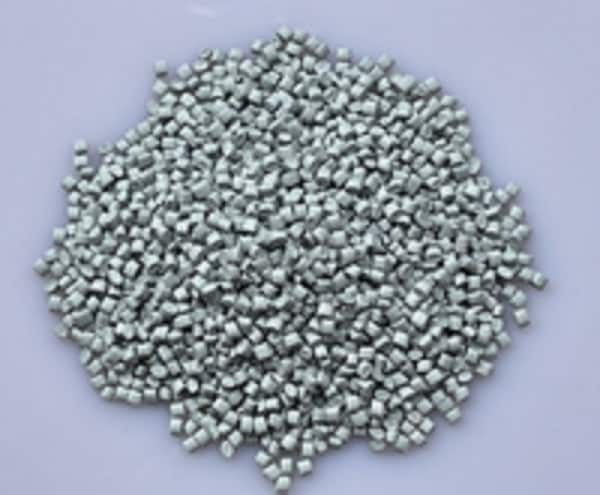
Toray Industries, Inc., announced today that it has developed fast-acting antiviral particles (see note 1).
Conventional disinfection with antiseptic solutions and other chemicals is effective and fast-acting on viral infections. The downside, however, is short volatilization, necessitating regular disinfections. While non-volatile metal-based antivirals offer generally lasting protection, the issue is that many of them take at least an hour to deactivate 99.9% of viruses. Recycled-Melt-to-Preform – Circular-economy
Toray responded to that situation by developing antiviral particles that deactivate 99.9% or more of SARS-CoV-2 virus (the cause of COVID-19) strains in just 15 seconds and 99.99% or more of the strains within 5 minutes. The company achieved this by adding virus adsorption and oxidative degradation capabilities to cerium oxide particles through proprietary synthesis and surface treatment techniques. Toray drew on functional particle design, synthesis, and surface control technologies that it has developed over the years. The new particles deactivate viruses around 100 times faster than conventional metal-based antiviral agents. They are thus among the world’s quickest deactivation delivery vehicles.
Another benefit is that the particles do not volatilize and are lasting protection. That is because they do not use the virus deactivation principle of slow releases with drugs, metal ions, or other active ingredients. The particles also offer excellent safety (see note 2) and resist discoloration and corrosion.
Prospective media for the particles include building materials, paints, and packaging materials. They could thus be deployed in diverse products, including in public spaces in which numerous people might gather, necessitating measures to safeguard from virus infection. Other targets could be public transportation facilities, restaurants, medical and eldercare facilities, interior walls and railings at schools, and regular appliances and food packaging.
Antiviral particles could coat or be kneaded into diverse items. These could include non-woven fabrics for Toray’s masks and medical gowns, air filters, car seats, and other products that could benefit from these particles to prevent droplet and contact infections. Recycled-Melt-to-Preform – Circular-economy
Toray will gradually roll out test samples of the particles to customers.

-LOG makes major multimillion dollar cleanroom investment
The pharma primary packaging specialist specialising in oxygen and moisture barrier solutions has invested in an ISO Class 8 cleanroom
To meet growing demand for its global services LOG, a pharma primary packaging specialist specialising in oxygen and moisture barrier solutions, is significantly expanding its manufacturing floor to increase capacity.
The expansion includes the construction of a new multi-million-dollar ISO Class 8 cleanroom that will bring significant productivity benefits to its blue-chip customers across the world, including Unilever, Teva, Chemo and Gedeon Richter.
This major investment in new facilities provides corporate cutting-edge automated online inspection and Artificial Intelligence (AI) surveillance.
The expansion also ensures immediate and reliable detection of defects to provide the highest level of product quality control and consistency for customers which, in the UK, are served by a European Sales Office based in Switzerland.
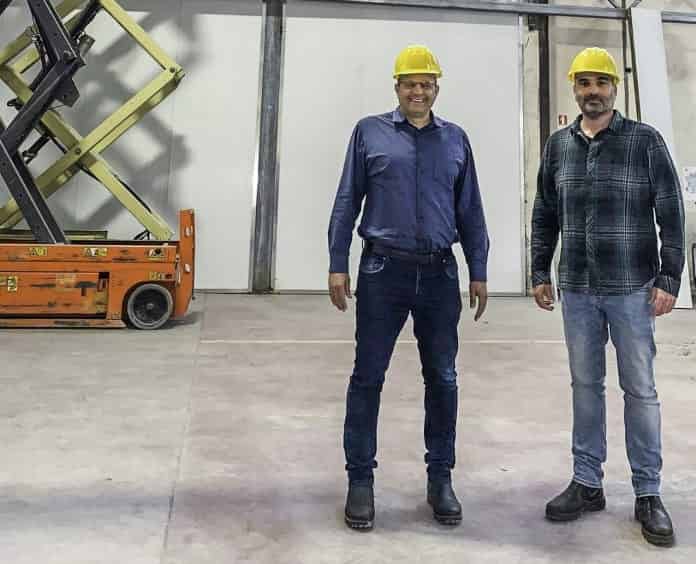
Recycled-Melt-to-Preform – Circular-economy
